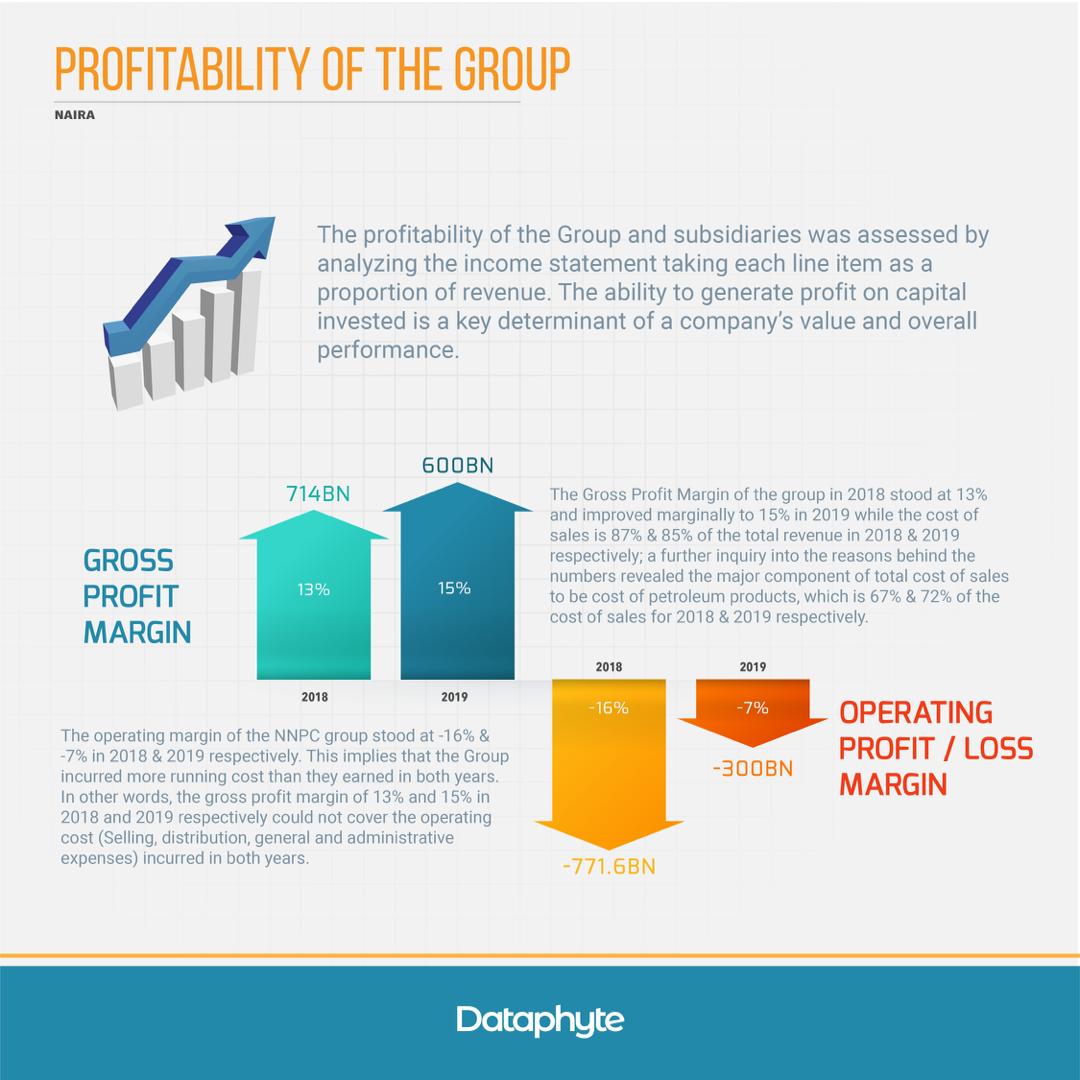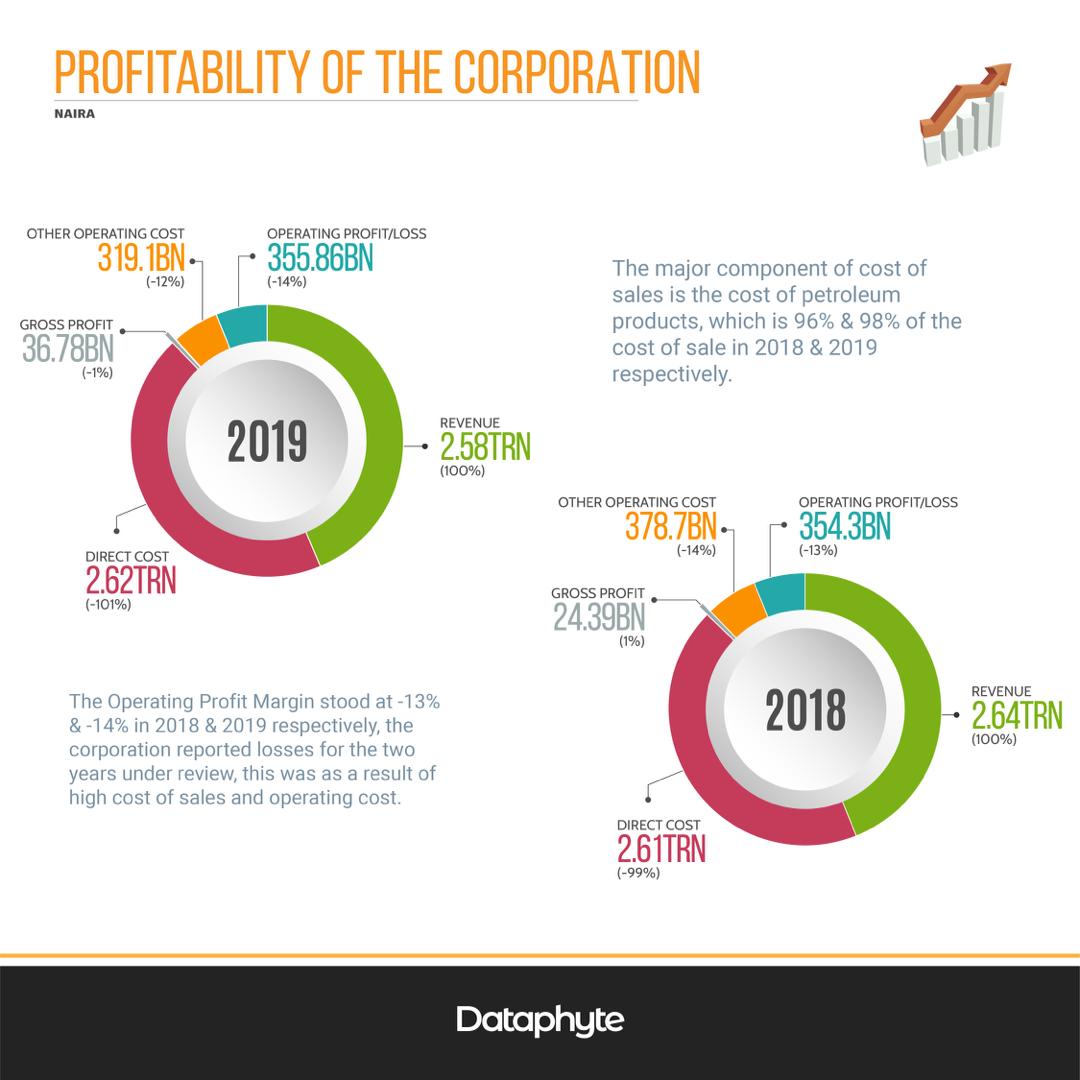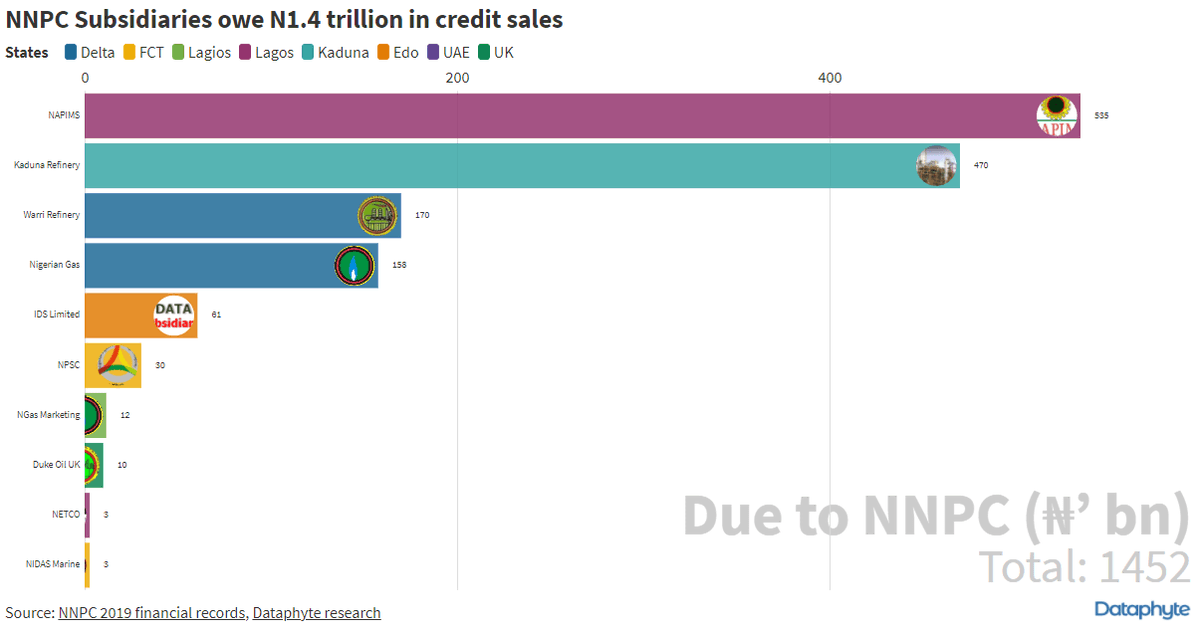
The NNPC is like a big black hole, sucking in national funds & resources, leaving institutions half dead & the country worse off.
Makes you wonder "this oil gan sef, na blessing, abi na curse?"
#NNPCBadDebts
Makes you wonder "this oil gan sef, na blessing, abi na curse?"
#NNPCBadDebts
NNPC, via the corporation’s financial account, posted a loss of N16.3 billion in 2019 . The overall Group reported a N20.2 billion loss. In 10 years, the corporation had reported a combined loss of N474 billion while that of the group stands at N1.55 trillion
#NNPCBadDebts
#NNPCBadDebts
@Dataphyte ran an analysis of NNPC's financial report & revealed that credit sales to subsidiaries worth N1.45 trillion remain unpaid. Furthermore, of NNPC's 22 subsidiaries, 12 owe the parent company trillions of Naira.
#NNPCBadDebts
#NNPCBadDebts
Unrecovered credit sales & overdue payments are bound to adversely affect the efficiency of the NNPC & invariably the Nigerian economy (as oil is Nigeria's main source of income)
#NNPCBadDebts

#NNPCBadDebts


Breakdown of the credit sales showed that the Kaduna refinery owed NNPC a whooping N470.08 billion in unpaid bills. Warri refinery owes N169.93 billion while Nigerian Gas Company Limited owes N157.63 billion.
#NNPCBadDebts
#NNPCBadDebts
Perhaps the most baffling (at least to me) is the case of National Petroleum Investment Management Services (NAPIMS is a subsidiary managing the Nigerian Government's investments in the upstream sector) owing the NNPC N534.8 billion
#NNPCBadDebts
#NNPCBadDebts
The NNPC produces 2 million barrels per day, but when the conversation shifts to profitability, NNPC hides its face amongst other state owned oil firms across the globe
#NNPCBadDebts
#NNPCBadDebts
According to @Dataphyte reports, Saudi Arabian Oil (Saudi Aramco) posted a profit of $330 billion. Russian Government controlled Rosneft Oil Corporation posted $140 billion profit. China Petroleum Corp (CNPC) posted $396 billion profit.
#NNPCBadDebts
#NNPCBadDebts
While NNPC posted a N423 billion revenue shortage, CNPC that are within capacity in oil production during the same period we're reporting $396 billion profit
#NNPCBadDebts
#NNPCBadDebts

If this doesn't scream mismanagement then I don't know what does.
The below graphics show some recommendations going forward.
#NNPCBadDebts
The below graphics show some recommendations going forward.
#NNPCBadDebts

• • •
Missing some Tweet in this thread? You can try to
force a refresh





